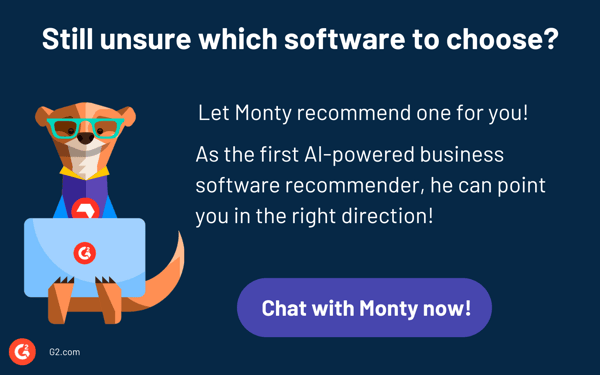July 4, 2025
 by Holly Landis / July 4, 2025
by Holly Landis / July 4, 2025

Here’s a number that should make every IT leader sit up straight: the average cost of a data breach reached $4.88 million in 2024, the highest ever recorded. And guess where much of that compromised data lived? Inside corporate databases.
Whether you’re running a SaaS startup or an enterprise sprawling across multiple cloud environments, database security is no longer a “nice to have." It’s a mission-critical priority.
Database security protects a database from unauthorized access, misuse, or attacks. It uses measures like encryption, access controls, and regular audits to keep data safe. Strong database security prevents data breaches, ensures compliance with regulations, and maintains the integrity and availability of information.
Not only are database security solutions designed to protect the data held within, they also maintain the database management system itself, along with the applications, systems, servers, and other infrastructure connected to the database.
For most IT teams, dedicated database security software is the easiest way to track activity within every database and ensure that only permitted users can access the most sensitive data. Essential features like encryption and activity monitoring are typically built into these systems, making database management and security more efficient for businesses of any size.
Experiencing a data breach can spell catastrophe for organizations, particularly when databases have been accessed, and sensitive company information is put at risk. Some of the possible consequences of a database breach are:
In many cases, the most common threats to database security come from misuse of the system. This can lead to unauthorized users gaining access in a number of ways:
Here’s a table summarizing some of the most common threats to database security, along with their descriptions and mitigation strategies:
| Database security threat type | Description | Mitigation |
| Insider Access | Credential misuse by employees or contractors | Role-based access controls, auditing, and least privilege |
| Human Error | Misconfigurations, weak passwords | Regular training, MFA, password rotation |
| SQL Injection | Malicious input exploiting database queries | Input validation, prepared statements, WAFs |
| Malware/Ransomware | Malicious software infecting endpoints | Endpoint protection software, backups, and patching |
| DDoS Attack | Overloading resources to disrupt operations | DDoS protection services, network segmentation |
| Buffer Overflow | Memory manipulation to gain control | Code reviews, patching, and runtime protection |
To ensure the highest level of protection, database security should include all areas of the system, from the database itself to the hardware it’s connected to.
Databases can be located either on the business’s property in physical servers or digitally in the cloud. Regardless of where the information lives, you should always confirm that the servers are in a secure, climate-controlled space. If you aren’t managing the server yourself, always choose a provider who can guarantee these protections.
Not every user should have access to everything in the database. In fact, you should operate on a minimum number approach—who actually needs to have access to this information? Permission levels should be set on a per-user basis and continually reviewed for ongoing security. Limit network access as much as possible. It may be worth opening a second network specifically for guests if you have customers or vendors who use your network frequently.
All data should be protected using the highest level of encryption possible, both while it’s being stored on the server and when it’s being used across the network. This will help protect private and confidential information from anyone who isn’t authorized to access it.
Any applications or software that are connected to the database should also be periodically updated with the latest security features. Vulnerabilities in these systems allow hackers access to the database, even if the database itself isn’t the original source of compromise.
No matter the type of database you have, always have backups of its information on a separate network and server. This is a proactive step in the event of lost database access, either accidentally or due to a targeted attack. Ransomware attacks, whereby hackers try to extort businesses for money by withholding their data, are common. A separate copy of all your data on an equally-secured server is non-negotiable.
Managing passwords and permissions is essential for database security and is typically handled by dedicated security staff or IT teams. This often involves using access control lists. Organizations can enhance password management by implementing measures like dual or multi-factor authentication and setting time limits for credential input. Although keeping access and permissions lists up-to-date can be time-consuming, it is crucial for security.
By placing sensitive databases in locations that are less accessible or known only to authorized personnel, you reduce the risk of unauthorized access. Additionally, database isolation can provide protection against zero-day attacks by limiting the exposure of sensitive data to potential threats.
Database auditing provides visibility into who accesses databases, their actions, and timing. Instead of manually reading log files, companies often use dedicated auditing solutions that aggregate data from various sources, offer centralized event summaries, and deliver real-time alerts for suspicious activity.
A database firewall is designed to monitor and analyze database traffic to detect attacks specific to databases. It helps identify and respond to unusual or suspicious activity and can be deployed in both on-premise and cloud-based environments to safeguard against potential threats.
Network firewalls, including specialized web application firewalls (WAFs), are critical for blocking unauthorized access and protecting database applications against specific threats like SQL injections. Their features, like continuous monitoring and updates, coupled with tools like Data SecurityPosture Management (DSPM), help identify and fix vulnerabilities in real time.
Even with encryption and access controls in place, default database installations often have unnecessary features enabled, insecure configuration settings, or outdated components. Database hardening is the process of reducing your attack surface by configuring systems securely, disabling unneeded services, and enforcing strict policies.
Below are some key database hardening steps to consider:
Strong database security relies on more than just a few tools or policies. Combining technical safeguards with proactive management and user awareness helps create a resilient defense against evolving threats. Here are some best practices to consider:
For businesses of all sizes, database security software assures you that the data stored within the database is used properly and is secure from any unauthorized usage. Some solutions are on-premises or through the cloud, and some have hybrid platforms to help businesses choose the best level of security for their data.
Many organizations rely on these dedicated tools to harden configurations, discover vulnerabilities, and maintain compliance. These tools automate scanning, reporting, and remediation so teams can secure their environments more efficiently. G2 features reviews from IT and security professionals sharing which database security tools help them protect critical data, simplify compliance, and maintain business continuity.
Below are some most widely used options:
To be included in the database security software category, platforms must:
Below are the top five database security software solutions from G2’s Summer 2025 Grid Report. Some reviews may be edited for clarity.
As a data security platform, IBM Security Guardian Insights allows enterprises to address data security and compliance needs quickly and easily. The software automates the compliance process with policy enforcement measures while centralizing data from multiple cloud databases. This consolidated view is the best way to review critical data and your current security levels.
“I like IBM Security Guardium insights because of its capability to protect data, threat detection and prevention, compliance management, and risk management. And moreover, it’s a user-friendly platform.”
- IBM Security Guardian Insights Review, Salman K.
“It is very tough to deploy in a big environment. I also dislike that it does not provide good documentation for the deployments.”
- IBM Security Guardian Insights Review, Vishal S.
SAP SQL Anywhere is one of the top software for a relational database management system designed for embedded and remote environments. It offers built-in encryption for data at rest and in transit, granular access controls, and auditing capabilities to protect sensitive information. With automatic backup and recovery features, it helps ensure data security and resilience across distributed applications.
"SAP SQL is secure, with a range of security features to protect data from unauthorized access. It supports a wide range of programming languages, including Java, Python, and C++, which makes it more flexible than other database management systems. It is scalable, and can handle large amounts of data and a high level of user traffic without performance issues."
- SAP SQL Anywhere Review, Vaishnavi K
"The sync times are longer when using SQL Anywhere. The initialization and loading data takes a lot of time in show the SQL tables. The solution of UI with SQL Anywhere makes the user experience slow."
- SQL Anywhere Review, Anas S.
The Oracle Audit and Database Firewall provides database protection for both Oracle and non-Oracle databases. The system is built to detect and block threats as they become known, improve compliance reporting, and consolidate audit data from the databases it manages.
“The Database Firewall monitors activity block/permits search query language (SQL) activity on the network. Easier way to collect audit data and create the audit report. Good variety of formats to use for reports.”
- Oracle Audit Vault and Database Firewall Review, Mohammad S.
“Sometimes a little slow and difficult to integrate with other outside applications.”
- Oracle Audit Vault and Database Firewall Review, Anandb K.
Satori Data Security Platform provides a universal data access layer that enforces security policies in real time without changing your databases. It includes dynamic masking, access controls, and auditing to protect sensitive data across cloud and on-prem environments. With continuous monitoring and automated compliance reporting, Satori streamlines data security and governance at scale.
“I personally work in Data audit and monitoring so these platform really made my work easy also it is handy to integrate with your current system. With the Data Enrichment feature you can perform at best level here. Implementation of this platform is really quick i believe as i have moderate frequency of using the platform.”
- Satori Data Security Platform Review, Pratik K.
“The pricing can be a little cheaper, else everything is perfect in Satori!”
- Satori Data Security Platform Review, Souradip S.
Oracle Data Safe is a unified control center for all Oracle databases, where you can safely manage your sensitive information. From one simple system, you can access user security settings, monitor overall security controls, and address compliance issues.
“Well, say goodbye to unwanted or unauthorized data access and malware that can hinder any organization's performance. Oracle Data Safe gives users control over user activity, monitoring, and how they log in – and in this case, data protection is ensured.”
- Oracle Data Safe Review, Amelia G.
“The processing here makes the user wait longer than expected.”
- Oracle Data Safe Review, Avinaw S.

Database hardening is the process of reducing your attack surface by disabling unused features, changing default settings, applying secure configuration templates, and tightening access controls.
Cloud databases operate under a shared responsibility model: the provider secures the infrastructure, while you configure access controls, encryption, and monitoring. Misconfigurations and public exposure are common cloud-specific risks.
Solutions like IBM Guardium, Oracle Audit Vault and Database Firewall, Oracle Data Safe, Satori Data Security Platform, McAfee Vulnerability Manager, Imperva SecureSphere, and SAP SQL Anywhere offer capabilities such as vulnerability scanning, activity monitoring, encryption, and compliance reporting.
Regular audits, ideally quarterly or whenever major changes occur, help ensure configurations remain secure, access controls are up to date, and no unauthorized activity has taken place.
Encryption at rest protects stored data (e.g., files and backups), while encryption in transit secures data moving between applications, users, and databases over the network.
A Zero Trust approach assumes no implicit trust inside or outside the network. Every access request is verified continuously, and micro-segmentation, strict authentication, and real-time monitoring are enforced around database systems.
Key regulations include GDPR, HIPAA, PCI DSS, SOX, and CCPA. Each has requirements for data protection, access controls, breach notification, and auditing that organizations must comply with.
Protecting your most valuable asset, your business data, demands more than deploying a few security tools. It requires a mindset that prioritizes vigilance and continuous improvement at every level of your organization. The reality is that most breaches don’t begin with a sophisticated zero-day exploit; they start with something as mundane as a misconfigured permission, an outdated patch, or an employee who didn’t realize they were clicking a malicious link.
Even the most robust database security platform can’t compensate for complacency. That’s why the most successful IT teams treat security as an ongoing discipline. They train their staff regularly, test their defenses with simulated attacks, and challenge their assumptions about where risks might hide. When security becomes part of your organization’s DNA, you’re far more prepared to adapt as threats evolve.
Don’t wait for an incident to remind you how crucial these safeguards are. Make proactive investment in strong policies, modern tools, and a culture of accountability your standard, not your backup plan. Your data deserves nothing less.
Ready to take the next step? Make your devices as secure as your databases with endpoint protection platforms that offer all-in-one security for computers and servers.
This article was published in 2024 and has been updated with new information.
Holly Landis is a freelance writer for G2. She also specializes in being a digital marketing consultant, focusing in on-page SEO, copy, and content writing. She works with SMEs and creative businesses that want to be more intentional with their digital strategies and grow organically on channels they own. As a Brit now living in the USA, you'll usually find her drinking copious amounts of tea in her cherished Anne Boleyn mug while watching endless reruns of Parks and Rec.
Developing an app is exciting until your relational database starts breaking things you didn’t...
 by Sudipto Paul
by Sudipto Paul
From engineering teams building scalable applications to data leaders powering real-time...
.png) by Devyani Mehta
by Devyani Mehta
Developing an app is exciting until your relational database starts breaking things you didn’t...
 by Sudipto Paul
by Sudipto Paul
From engineering teams building scalable applications to data leaders powering real-time...
.png) by Devyani Mehta
by Devyani Mehta



